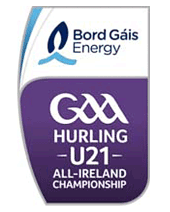.jpg) |
| Getty Images |
Sweden coach Erik Hamren compared Zlatan Ibrahimovic's stunning overhead kick for his fourth goal against England to "watching a video game".
The striker's amazing improvisation saw him acrobatically volley Joe Hart's headed clearance in from 30 yards, as Sweden won 4-2.
England captain Steven Gerrard, winning his 100th cap, said it was "probably the best goal" he had seen live.
"I don't know if you will see another like it in your life," said Hamren.
"Sometimes, when he's doing these things, in training or in matches, you don't think it's possible. Because it's not possible to do that - the fourth goal, for example."
Ibrahimovic's spellbinding final effort combined unfathomable imagination and expert technique to stun the Friends Arena crowd in stoppage time.
The 6ft 5ins forward has split opinion throughout his career, with many on mainland Europe hailing a genius who has been the driving force behind title successes for clubs Ajax, Juventus, Inter Milan, Barcelona and AC Milan, while British sources sometimes cite an enigmatic figure who rarely performs on the biggest stage.
Speaking after his four-goal exploits in Solna, Ibrahimovic commented on his reputation by saying: "That's the way it is with the English. If you score against them you're a good player, if you don't score against them you're not a good player.
"I remember Lionel Messi before the 2009 Champions League final for Barcelona.Then he scored against Manchester United and suddenly he was the best player in the world. Maybe now they'll say something like that about me.
"Hart was a long way out and I was just trying to get it into the goal. I was on the ground when it was on the way in.
"I saw a defender sliding in to try to get rid of it and I wanted to scream 'No' but the ball went in."
An example of Ibrahimovic's trademark confidence came in the build-up to the friendly. When asked to grade his international career while on the cusp of receiving his 100th cap, Gerrard responded: "Six or seven."
In contrast, when posed with the same question on Wednesday night, Ibrahimovic replied without hesitation: "Ten."
England manager Roy Hodgson was quick to praise Ibrahimovic's invention on BBC Radio 5 live: "The fourth goal was the crowning glory.
"It's a wonderful goal to see on a football field, though I would rather have seen it against someone else."
Gerrard believes the goal eclipses that of Wayne Rooney's for Manchester United against Manchester City last season.
The England striker's stunning overhead kick, which gave United a 2-1 win, was voted the best goal in the history of the Premier League.
"I think the best goal I have seen before that is Wayne Rooney's (against Manchester City)," said Gerrard.
"Everyone knows how special that was but this one tonight - an overhead kick from 25 yards [sic] when the ball is six feet in the air - only certain players can do that."
Former England manager and BBC Radio 5 live pundit Graham Taylor insisted the Swede's superb volley was one that will live long in the memory.
He said: "That is one of the best goals I have ever seen. What a fantastic goal, it has made this game one we will never forget.
"Ibrahimovic scores exceptional goals. It was an exceptionally gifted, talented goal."
England debutant Leon Osman said: "Ibrahimovic just seemed to have five minutes of dominance and then the wonder goal at the end.
"It is certainly the best goal I have seen live, in its presence. To do what he did, the imagination of it alone and to get as high as he did for a big guy was unbelievable, and it found the back of the net. It was a terrific goal and the best I have seen."
Taylor's colleague Pat Nevin said: "His fourth goal was beyond perfection, it was magical. His technique was off the scale."





